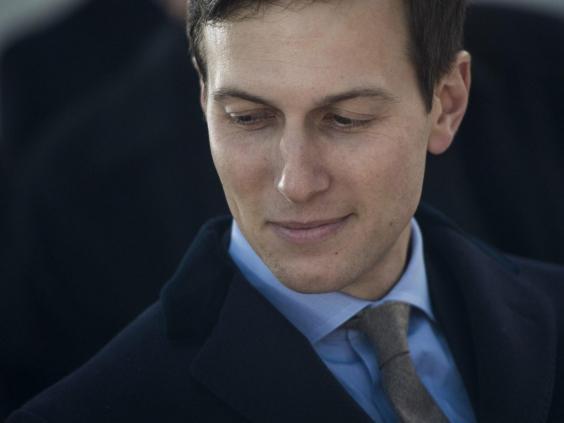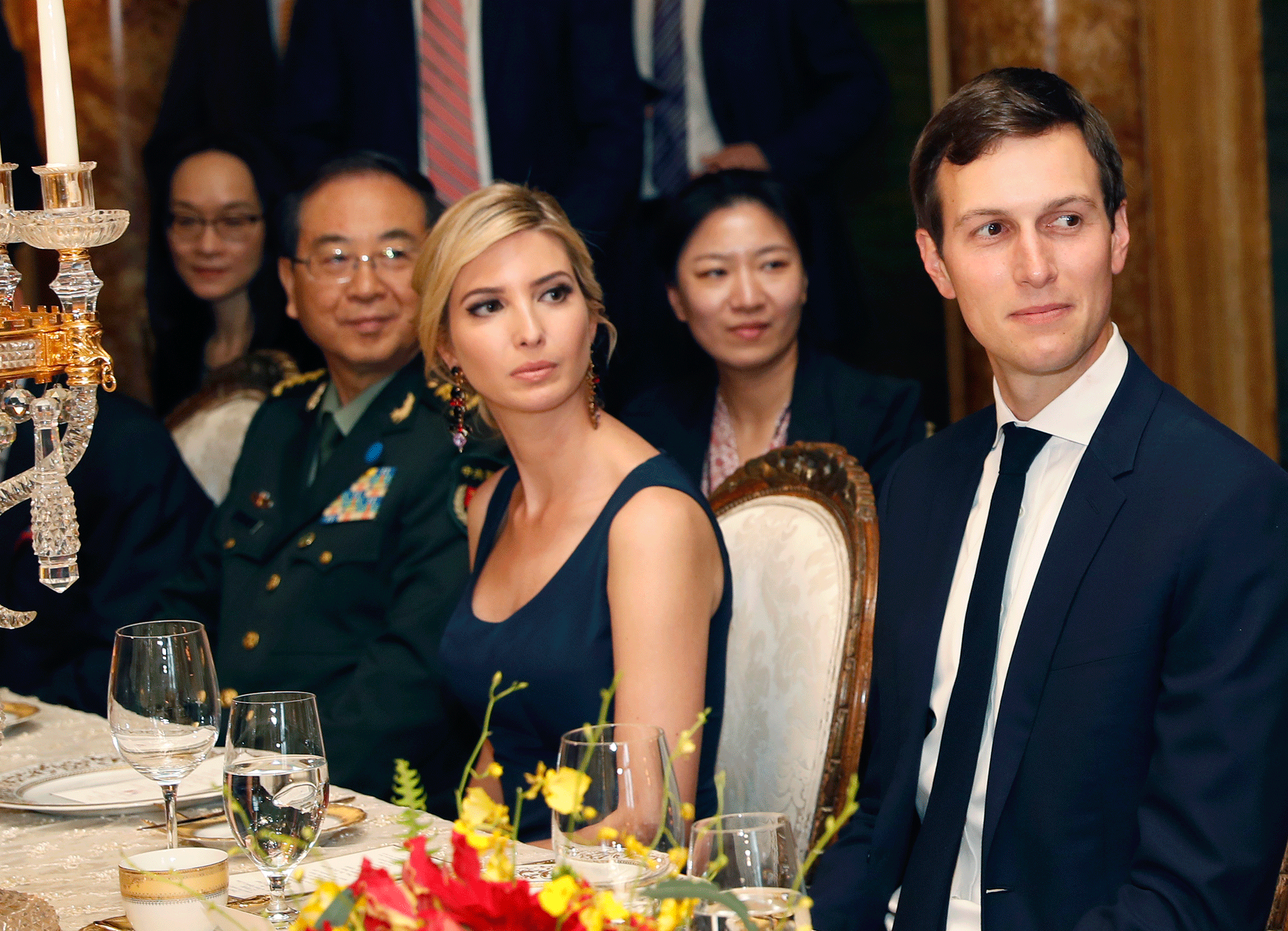Kushner family sells $500,000 'investor visa' to rich Chinese at Beijing ballroom event
Trump's immigration crack down prompts speculation about future of 'golden visa'

Your support helps us to tell the story
From reproductive rights to climate change to Big Tech, The Independent is on the ground when the story is developing. Whether it's investigating the financials of Elon Musk's pro-Trump PAC or producing our latest documentary, 'The A Word', which shines a light on the American women fighting for reproductive rights, we know how important it is to parse out the facts from the messaging.
At such a critical moment in US history, we need reporters on the ground. Your donation allows us to keep sending journalists to speak to both sides of the story.
The Independent is trusted by Americans across the entire political spectrum. And unlike many other quality news outlets, we choose not to lock Americans out of our reporting and analysis with paywalls. We believe quality journalism should be available to everyone, paid for by those who can afford it.
Your support makes all the difference.The Kushner family came to the United States as refugees, worked hard and made it big - and if you invest in Kushner properties, so can you.
That was the message delivered Saturday by White House senior adviser Jared Kushner's sister to a ballroom full of wealthy Chinese investors, renewing questions about the Kushner family's business ties to China.
Over several hours of slide shows and presentations, representatives from the Kushner family business urged Chinese citizens gathered at the Ritz-Carlton hotel to consider investing hundreds of thousands of dollars in a New Jersey real estate project to secure what's known as an investor visa.
The EB-5 immigrant investor visa program, which allows foreign investors to invest in US projects that create jobs and then apply to immigrate, has been used by both the Trump and Kushner family businesses.
But President Donald Trump's vow to crack down on immigration, as well as criticism from members of Congress, has led to questions about the future of a program known here as the " golden visa."
The EB-5 has been extremely popular among rich Chinese who are eager to get their families - and their wealth - out of the country, though the fact that some move their money out illegally has made the program unpopular with the Chinese government, too.
In the ballroom of the Ritz-Carlton on Saturday, Chinese investors were advised to invest sooner rather than later in case the rules change. "Invest early and you will invest under the old rules," one speaker said.
The woman identified as "Jared's sister" was believed to be Nicole Kushner, who is involved in the family business, not Dara Kushner, who generally stays out of the spotlight. But the woman's face was not clearly visible from the back of the ballroom, where reporters were told to remain.
Saturday's event in Beijing was hosted by the Chinese company Qiaowai, which connects US companies with Chinese investors. The tag line on a brochure for the event: "Invest $500,000 and immigrate to the United States."
Qiaowai is working with Kushner to secure funding for Kushner 1, a real estate project in New Jersey. Promotional materials tout the buildings' proximity to Manhattan and note that the project will create more than 6,000 jobs.
"This project has stable funding, creates sufficient jobs and guarantees the safety of investors' money," one description reads.

Although there was no visible reference to Trump, the materials noted the Kushner family's "celebrity" status. Wang Yun, a Chinese investor who attended the event, said the Kushner family's ties to Trump, via son-in-law Jared, were a part of the project's appeal - but also a source of concern.
"Even though this is the project of the son-in-law's family, of course it is still affiliated," Wang.
Wang reasoned that the link to Trump would be a boon if the presidency goes well but could be disastrous if it does not: "We heard that there are rumours that he is the most likely to be impeached president in American history. That's why I doubt this project."
Many of the people who attended the event declined to be interviewed, citing privacy concerns, or they were blocked by organisers from speaking to the news media.
Indeed, though the event was publicly advertised in Beijing, the hosts were exceptionally anxious about the presence of reporters.
Journalists were initially seated at the back of the ballroom, but as the presentations got underway, a public relations representative asked The Post to leave, saying the presence of foreign reporters threatened the "stability" of the event.
At one point, organisers grabbed a reporter's phone and backpack to try to force that person to leave. Later, as investors started leaving the ballroom, organisers physically surrounded attendees to stop them from giving interviews.
Asked why reporters were asked to leave, a public relations representative, who declined to identify herself, said simply, "This is not the story we want."
Washington Post
Join our commenting forum
Join thought-provoking conversations, follow other Independent readers and see their replies
Comments